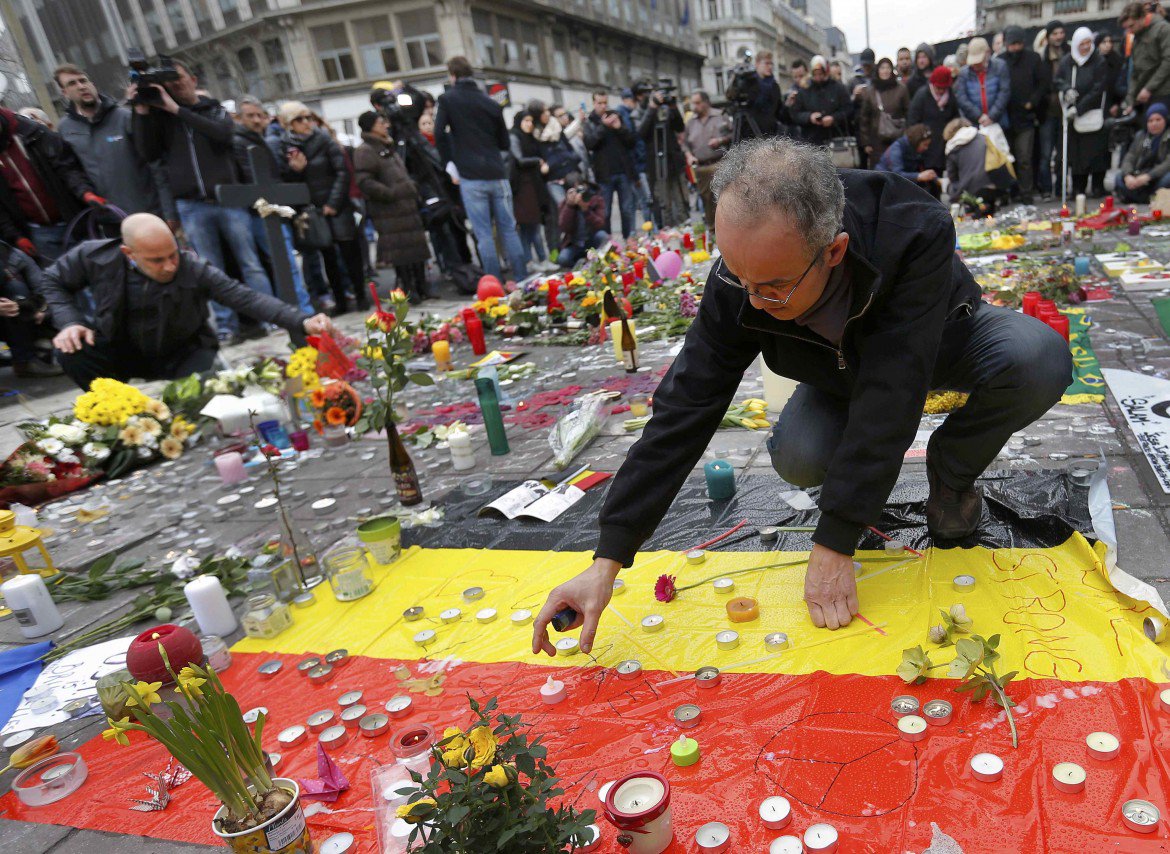Commentary
Intelligence problem
The attack on Brussels exposed the misguided priorities of European intelligence.

First it was al Qaeda, which continues to destabilize Africa, and now it’s al Baghdadi’s Islamic State terrorizing Europe. Terrorism is an unconventional weapon and cannot be defeated by even the most sophisticated bombs or drone. When the terrorists next door hit and a watchful taxi driver is able to report a den of radicals that the Belgian security forces had not been able to find, terribly disturbing questions arise. Everybody has said it: Belgian security is a sieve. Too bad that Brussels hosts, among others, the headquarters of the European Commission and NATO, strategic and symbolic objectives.
Security forces are not enough to combat terrorism. Even the most prepared army is not ready to deal with this type of destabilizing weapon. We need a strategy based on a thorough understanding of the ideology that constitutes the ideas, recruitment and financing source of terrorists. This is an ideology that exalts martyrdom as a road to a heavenly life of earthly enjoyments. It is a logic that cannot be not understood by way of materialism, but it also attracts many Westerners in search of non-ephemeral values.
What kind of intelligence service can make up for the lack of internal knowledge of that world? Only one that collects information not to warrant a military intervention or to please a political leader, but to be at the service of security for the citizens and the state.
The political party to which I belong has always been suspicious, if not hostile, toward intelligence services for the role they have played in Italy’s past and that, often, they still play.
However there was a parenthesis in our (and in my) story that made us think again about the role of at least some of them: Nicola Calipari was critical to my safety and that of other hostages because he knew the terrain, he knew how and with whom to deal, and he was aware that without intelligence gathering, there could not be a political strategy.
This position goes against the logic of the fundamentalists, the warmongers, the arms dealers and those who are not interested in conflict resolution unless the fulfillment of their interests is guaranteed. And the interests of various European countries often do not coincide. This is why I do not agree with creating a European intelligence system. Everyone wants to grow their own vegetable garden and/or former colony, conquer new reserves of raw materials or expand their own markets.
Is it a coincidence that Calipari was killed by U.S. troops and that his team — the so-called “calipariani” — was taken out of the game? Yet at that time, Italy had developed a knowledge of the dynamics of the Middle East that today would be extremely important to act politically and not just militarily, on a scenario that is very close to us. Lampedusa is closer to Libya than to the Italian mainland.
And that brings us to the question of refugees. In this case, perhaps it is not only ignorance but bad faith of the European rulers: How can you deliver refugees fleeing war and terror imposed by the caliphate to a fundamentalist government like Erdogan’s, which supported (and supports) their executioners? Erdogan is bombing the Kurds in Rojava, women and men who defend a secular and democratic model of society, the only ones able to counter the Islamic State militarily, even though they do not have sophisticated weaponry.
Instead of helping the Kurds to rebuild towns destroyed by the jihadists, the E.U. entrusts €6 billion to Turkey to get rid of the refugees. With that same money, how many refugees could be resettled and integrated in Europe?
There are those who equate refugees (the first victims of terrorism) with suicide bombers. But Brussels, if we still needed proof, demonstrated that the terrorists live among us. And they are not the most marginalized, disadvantaged, abused individuals. On the contrary: They are prepared and have the means to blow us up.
Originally published at http://ilmanifesto.info/questione-di-intelligence/ on 2016-03-24
